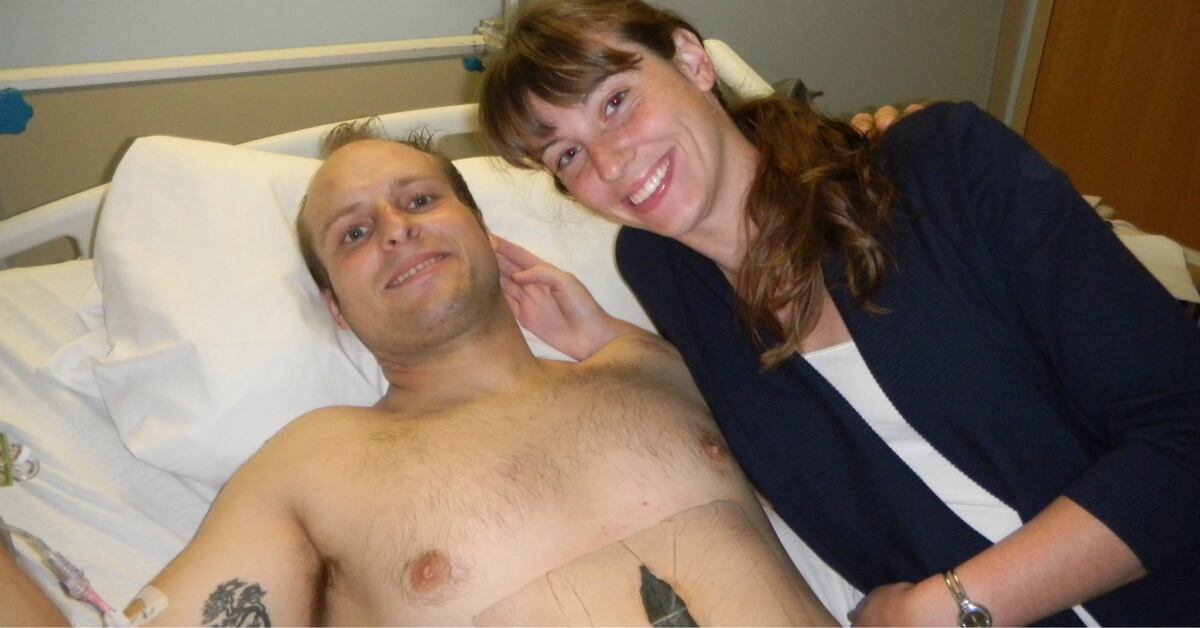Almost everyone must overcome obstacles on their way to a successful career. For retired Green Beret Kevin Flike, that was taken to a ridiculous extreme.
Rejections and waitlists from colleges. A lack of interest from corporate America. Oh, and a severe combat injury that derailed his military career and required extensive medical care and recovery.
But Flike persevered through everything, landed a job that allows him to use his leadership skills and launched a blog to help his fellow vets.
“I realized my recovery was hard, but it was still better than others’,” Flike said. “This blog allowed me to help others one-on-one and share how I dealt with hard times.”
Flike enlisted in the Army in 2007, becoming a Green Beret after two years of Special Forces training.
But Flike’s world was turned upside down during a 2011 deployment to Afghanistan, when he was shot in the stomach.
“They could barely read my MRI. There was so much damage,” he said.
His stomach was cut open from right below his sternum to below his belly button. His left leg was paralyzed, his spine was fractured and 20 percent of his colon was removed.
In February 2012, Flike had surgery at the Mayo Clinic that led to an incision into the left side of his stomach. There was a cut from the bottom of his ankle to three-fourths of the way to his thigh, leaving him with no feeling in his left leg and 40 inches of scars.
“About 18 months after the surgery, I had full extension back in my leg,” he said, but he knew he wouldn’t be able to continue his service anymore.
When he came home from the hospital, his wife gave him a book: “How to Get into the Top MBA Programs.”
Flike had thought about going to business school while he was serving, and after a hard-fought recovery, he saw it as the light at the end of a tunnel.
He applied to Harvard’s schools of business and government, as well as the Massachusetts Institute of Technology. He was rejected from both Harvard institutions and waitlisted at MIT.
Flike said he received tremendous support throughout his recovery from a lot of people – including some he didn’t even know – and that gave him motivation to push through.
“I wanted to do everything I possibly could to achieve my long-term goals. I told myself I would celebrate the small milestones to avoid getting discouraged. I didn’t want to let down the people who helped me.”
Flike eventually got into MIT and was later accepted into a master’s degree program at Harvard.
Although Flike was attending renowned universities, he struggled to land an internship. He had the “incredibly humbling experience” of being rejected by 16 out of the 17 companies he interviewed with.
“If 16 out of 17 say no, then it’s not them, it’s you,” he said. This made Flike think about how he presented himself at interviews. “I needed to do a better job of explaining what I’d done in the past as a Green Beret to someone who had never been in the military.”
He persevered and eventually landed internships with Amazon and then Goldman Sachs, the latter leading to a full-time position.
In 2013, Flike started a blog called “Wounded by War” to share his story with others who were in the same position as him. Flike said his suffering became bearable when he understood that he could “take the darkest periods of my life and use it to help oher people.”

Flike’s top advice for vets trying to land a corporate job?
“Learn how to translate your resume so that somebody outside of the military completely understands what you’ve done and what you bring to the table.”
The biggest strength Flike said former military members have is their ability to operate in high-stress environments, which is something people don’t normally think of.
While working at Goldman Sachs, Flike said he learned a lot about business and markets. But what he wanted to do was lead, motivate and mentor others. That desire led him to Threat Stack, a cyber security firm in Boston employing almost 150 people.
“I talked about my past and everything I went through and how I wanted to lead and mentor. They made a position for me – director of strategic projects.”
Flike’s position involves a lot of project management, which includes gathering and allotting resources. “I’m quarterbacking a lot of projects to ensure they make it to the end zone.”
In addition to managing projects, Flike has also made a big impact heading the company’s culture committee, said Brian Ahern, CEO of Threat Stack. “He’s someone people go to when they have a concern and he’s a trusted individual who has the executive team’s and CEO’s ear.”
Ahern said he almost hired Flike right on the spot.
“Based on his experiences, I saw that he’s able to overcome any obstacle that comes his way.”
Shruti Bhatt is a rising senior at the University of Maryland, College Park.





